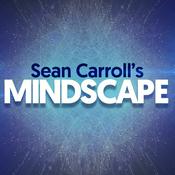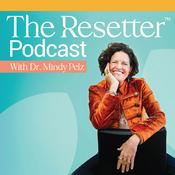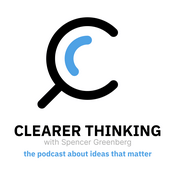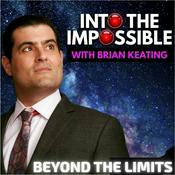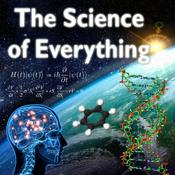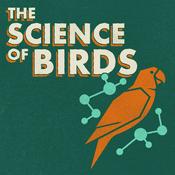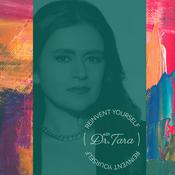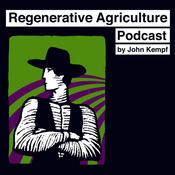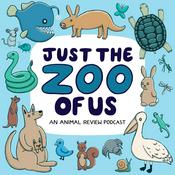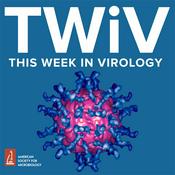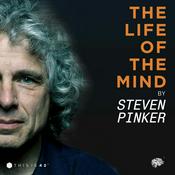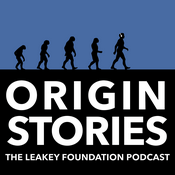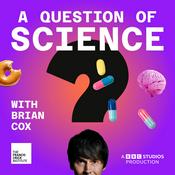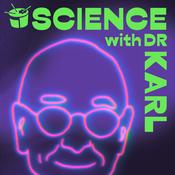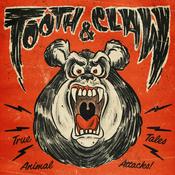44 episodes

Building a Better Barrier: Modeling the Human Gut Epithelium
2025/11/19 | 43 mins.
The human intestinal epithelial barrier comprises diverse proliferative, secretory and absorptive cell types that facilitate nutrient digestion and absorption and protect against harmful environmental agents. The barrier and its function can vary between individuals due to genetic differences thus impact processes such as digestion, drug metabolism, and drug sensitivity. Our guests today investigated the effect of diverse culture conditions on the cell type composition, gene expression profiles, and maturation status of human pluripotent stem cell-derived intestinal epithelial cells in three different model systems. Their research provides insight into the relevant conditions and systems for modeling specific intestinal functions and highlights the importance of personalized intestinal model systems. GuestsSebo Withoff is an Associate Professor in the Department of Genetics at the University of Groningen in the Netherlands. Iris Jonkers is an Adjunct Professor and Rosalind Franklin Fellow in the Department of Genetics at University of Groningen in the Netherlands. Renée Moerkens is a Postdoctoral Fellow at Ombion in the Netherlands. Joram Mooiweer is a PhD Student in the Department of Genetics at the University of Groningen, in the Netherlands. HostJanet Rossant, Editor-in-Chief, Stem Cell Reports and The Gairdner FoundationSupporting ContentGene expression profiling reveals enhanced nutrient and drug metabolism and maturation of hiPSC-derived intestine-on-chip relative to organoids and TranswellsAbout Stem Cell ReportsStem Cell Reports is the open access, peer-reviewed journal of the International Society for Stem Cell Research (ISSCR) for communicating basic discoveries in stem cell research, in addition to translational and clinical studies. Stem Cell Reports focuses on original research with conceptual or practical advances that are of broad interest to stem cell biologists and clinicians.X: @StemCellReportsAbout ISSCRWith nearly 5,000 members from more than 80 countries, the International Society for Stem Cell Research (@ISSCR) is the preeminent global, cross-disciplinary, science-based organization dedicated to stem cell research and its translation to the clinic. The ISSCR mission is to promote excellence in stem cell science and applications to human health.ISSCR StaffKeith Alm, Chief Executive OfficerYvonne Fisher, Managing Editor, Stem Cell ReportsKym Kilbourne, Director of Media and Strategic CommunicationsMegan Koch, Senior Marketing ManagerJack Mosher, Scientific DirectorHunter Reed, Senior Marketing Coordinator

Crossing the Border: Modeling the Blood Brain Barrier
2025/10/23 | 29 mins.
The blood-brain barrier (BBB), formed by brain endothelial cells, pericytes, and astrocytes, is organized into a neurovascular unit that regulates the exchange of proteins between blood circulation and brain parenchyma. Human stem-cell-based models using brain endothelial cells are a powerful tool to investigate how disease-related conditions might affect the blood-brain barrier integrity. However, the cell type composition is critical to faithfully model transcytosis across the blood-brain barrier. Our guests today developed a blood-brain model using induced pluripotent stem cells (iPSCs)-derived endothelial cells with brain-specific identity. Using this model they were able to investigate how disease risk factors affect intracellular transport and reveal a new role for ApoE4 in the regulation of iron metabolism at the blood-brain barrier. GuestsRoberto Villaseñor, Principal Scientist and Laboratory Head of the Brain Delivery, Neuroscience and Rare Diseases at the Roche Innovation Center in Basel, Switzerland Martina Pigoni, Senior Discovery Scientist at Roche Innovation Center in Basel, Switzerland HostJanet Rossant, Editor-in-Chief, Stem Cell Reports and The Gairdner FoundationSupporting ContentApoE4 disrupts intracellular trafficking and iron homeostasis in a reproducible iPSC-based model of human brain endothelial cells, Stem Cell ReportsAbout Stem Cell ReportsStem Cell Reports is the open access, peer-reviewed journal of the International Society for Stem Cell Research (ISSCR) for communicating basic discoveries in stem cell research, in addition to translational and clinical studies. Stem Cell Reports focuses on original research with conceptual or practical advances that are of broad interest to stem cell biologists and clinicians.X: @StemCellReportsAbout ISSCRWith nearly 5,000 members from more than 80 countries, the International Society for Stem Cell Research (@ISSCR) is the preeminent global, cross-disciplinary, science-based organization dedicated to stem cell research and its translation to the clinic. The ISSCR mission is to promote excellence in stem cell science and applications to human health.ISSCR StaffKeith Alm, Chief Executive OfficerYvonne Fisher, Managing Editor, Stem Cell ReportsKym Kilbourne, Director of Media and Strategic CommunicationsMegan Koch, Senior Marketing ManagerJack Mosher, Scientific DirectorHunter Reed, Senior Marketing Coordinator

Movin’ On Out: Mobilizing HSCs From The Bone Marrow
2025/9/22 | 33 mins.
Hematopoietic stem cells (HSCs) normally reside in the bone marrow niche but can traffic across the bone marrow endothelium into the bloodstream to populate different niches. This process of HSC mobilization from the bone marrow to the blood, is an increasingly favored procedure to obtain HSCs for hematopoietic cell transplantation therapy. Though mobilization is robust in many donors due to years of refined protocols and drug combinations, the process remains difficult or contraindicated among substantial patient subgroups. Using the current standard of care, up to 30% of patients fail to mobilize HSCs and some patients cannot tolerate the current mobilization procedures. Today’s guests will discuss their research using vascular endothelial growth factor, known as VEGF, as an alternative method of mobilization, the mechanisms underlying it, and the implications for improving patient outcomes.GuestsStephanie Smith-Berdan, MS, Institute for the Biology of Stem Cells, Department of Biomolecular, Engineering, University of California, Santa Cruz, USA. Camilla Forsberg, PhD, Institute for the Biology of Stem Cells, Department of Biomolecular Engineering, University of California, Santa Cruz, USA. HostJanet Rossant, Editor-in-Chief, Stem Cell Reports and The Gairdner FoundationSupporting ContentPaper link: Vascular endothelial growth factor-induced vascular permeability results in drastic and reversible hematopoietic stem cell mobilization, Stem Cell ReportsAbout Stem Cell ReportsStem Cell Reports is the open access, peer-reviewed journal of the International Society for Stem Cell Research (ISSCR) for communicating basic discoveries in stem cell research, in addition to translational and clinical studies. Stem Cell Reports focuses on original research with conceptual or practical advances that are of broad interest to stem cell biologists and clinicians.X: @StemCellReportsAbout ISSCRWith nearly 5,000 members from more than 80 countries, the International Society for Stem Cell Research (@ISSCR) is the preeminent global, cross-disciplinary, science-based organization dedicated to stem cell research and its translation to the clinic. The ISSCR mission is to promote excellence in stem cell science and applications to human health.ISSCR StaffKeith Alm, Chief Executive OfficerYvonne Fisher, Managing Editor, Stem Cell ReportsKym Kilbourne, Director of Media and Strategic CommunicationsMegan Koch, Senior Marketing ManagerJack Mosher, Scientific DirectorHunter Reed, Senior Marketing Coordinator

Cancer Neuroscience, Tumor Organoids, and Understanding the Role of the Nervous System in Human Glioblastoma
2025/8/12 | 45 mins.
The role of neuronal influences on cancer pathogenesis and progression is increasingly appreciated in the nervous system. Neurons have been shown to enhance the proliferation and migration of gliomas, a glial-derived tumor of the CNS, via diffusible paracrine factors or synaptic inputs onto tumor cells. In glioblastomas, a highly aggressive glioma, mostly glutamatergic inputs have been identified. While the potential for glioblastomas to receive projections from neurons of other neurotransmitter subtypes, such as from cholinergic neurons, has recently been discovered in xenotransplantation models, whether synapses can form between human cholinergic neurons and glioblastoma cells and consequences of these inputs and other non-synaptic mechanisms are still unknown. Human induced pluripotent stem cell-based models have been emerging as a powerful platform for studying human-specific disease mechanisms. Today’s guests developed a co-culture model for the study of neuron-tumor interactions by combining patient derived glioblastoma organoids and hiPSC-derived cholinergic neurons. They will discuss their recent findings and what it means for understanding and potentially treating a tumor for which there is no known cure. GuestsGuo-li Ming, MD, PhD, Department of Neuroscience and Mahoney Institute for Neurosciences, Perelman School of Medicine, University of PennsylvaniaHongjun Song, PhD, Department of Neuroscience and Mahoney Institute for Neurosciences, Perelman School of Medicine, University of Pennsylvania Yusha Sun, Neuroscience Graduate Group, Perelman School of Medicine, University of PennsylvaniaHostJanet Rossant, Editor-in-Chief, Stem Cell Reports and The Gairdner FoundationSupporting ContentPaper link: Cholinergic neuron-to-glioblastoma synapses in a human iPSC-derived co-culture model, Stem Cell ReportsAbout Stem Cell ReportsStem Cell Reports is the open access, peer-reviewed journal of the International Society for Stem Cell Research (ISSCR) for communicating basic discoveries in stem cell research, in addition to translational and clinical studies. Stem Cell Reports focuses on original research with conceptual or practical advances that are of broad interest to stem cell biologists and clinicians.X: @StemCellReportsAbout ISSCRWith nearly 5,000 members from more than 80 countries, the International Society for Stem Cell Research (@ISSCR) is the preeminent global, cross-disciplinary, science-based organization dedicated to stem cell research and its translation to the clinic. The ISSCR mission is to promote excellence in stem cell science and applications to human health.ISSCR StaffKeith Alm, Chief Executive OfficerYvonne Fisher, Managing Editor, Stem Cell ReportsKym Kilbourne, Director of Media and Strategic CommunicationsMegan Koch, Senior Marketing ManagerJack Mosher, Scientific DirectorHunter Reed, Senior Marketing Coordinator

Stem Cells in Space: Muscle Regeneration in Microgravity
2025/7/08 | 39 mins.
Skeletal muscle is one of the most abundant tissues in the human body, representing approximately 40% of body weight. Under certain circumstances, skeletal muscle can be regenerated through satellite cells, a reservoir of quiescent muscle stem cells, that can be activated with injury or in certain diseases and give rise to newly formed multi-nucleated myotubes and myofibers. However, the regenerative potential of muscle is diminished or is completely absent in the course of normal aging, certain diseases, and space travel. For example, time spent in microgravity can have a profound impact on human physiology, especially the muscular system, as astronauts lose up to 20% of their lean muscle mass and up to half of their strength. The identification of countermeasures against the effects of muscle regeneration, including microgravity, is an increasing priority for an aging population and continued space travel. Experiments in microgravity, conducted on the International Space Station, offer a unique opportunity to understand muscle regeneration and the effects of microgravity. Our guests today will discuss muscle regeneration, their muscle-on-a-chip platform that mimics salient aspects of impaired muscle regeneration, and the feasibility of drug screening in microgravity.GuestsNgan Huang, PhD, Department of Cardiothoracic Surgery, Stanford University, USASoochi Kim, PhD, Department of Biotechnology and Bioinformatics, Korea University, KoreaHostJanet Rossant, Editor-in-Chief, Stem Cell Reports and The Gairdner FoundationSupporting ContentPaper link: Skeletal muscle-on-a-chip in microgravity as a platform for regeneration modeling and drug screeningAbout Stem Cell ReportsStem Cell Reports is the open access, peer-reviewed journal of the International Society for Stem Cell Research (ISSCR) for communicating basic discoveries in stem cell research, in addition to translational and clinical studies. Stem Cell Reports focuses on original research with conceptual or practical advances that are of broad interest to stem cell biologists and clinicians.X: @StemCellReportsAbout ISSCRWith nearly 5,000 members from more than 80 countries, the International Society for Stem Cell Research (@ISSCR) is the preeminent global, cross-disciplinary, science-based organization dedicated to stem cell research and its translation to the clinic. The ISSCR mission is to promote excellence in stem cell science and applications to human health.ISSCR StaffKeith Alm, Chief Executive OfficerYvonne Fisher, Managing Editor, Stem Cell ReportsKym Kilbourne, Director of Media and Strategic CommunicationsMegan Koch, Senior Marketing ManagerJack Mosher, Scientific DirectorHunter Reed, Senior Marketing Coordinator
More Science podcasts
Trending Science podcasts
About The Stem Cell Report with Janet Rossant
Listen to The Stem Cell Report with Janet Rossant, Making Sense with Sam Harris and many other podcasts from around the world with the radio.net app
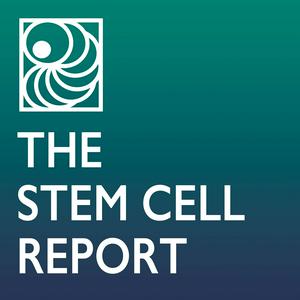
Get the free radio.net app
- Stations and podcasts to bookmark
- Stream via Wi-Fi or Bluetooth
- Supports Carplay & Android Auto
- Many other app features
Get the free radio.net app
- Stations and podcasts to bookmark
- Stream via Wi-Fi or Bluetooth
- Supports Carplay & Android Auto
- Many other app features


The Stem Cell Report with Janet Rossant
download the app,
start listening.


